Root
Printed From: Progarchives.com
Category: Progressive Music Lounges
Forum Name: Interviews
Forum Description: Original interviews with Prog artists (which are exclusive to Prog Archives)
URL: http://www.progarchives.com/forum/forum_posts.asp?TID=74029
Printed Date: July 02 2025 at 22:52
Software Version: Web Wiz Forums 11.01 - http://www.webwizforums.com
Topic: Root
Posted By: toroddfuglesteg
Subject: Root
Date Posted: December 12 2010 at 13:57
|
Root began as a three piece in Leicester, playing pubs, selling demos and getting local press coverage. Eventually it was time to move on to new challenges........ The rest of the story is told by this interview with David Kendall, the man behind Root. ************************************************************************************* To start with, please give us the Root
story from you played in pubs in Leicester to you released your first album.
Which bands were you influenced by and why did you choose that name
?
Being the only writer in the band, the
direction was pretty much determined by what I was listening to at the time,
which was Living Colour, It Bites, Dan Reed, Spin Doctors, Clapton. Although I
was still listening to Yes, Saga etc that kind of thing was not possible with a
three piece band. We played lots of local gigs, Paul eventually left and was
replaced by Shaun, my brother on bass. We had great live reviews and a demo
featured in Kerrang but the biggest blow came when Daniel left to go to college
to study music production. The band limped on for a while with a new drummer but
then fell apart.
I chose the ROOT name as it was simple and
would not tie us to one type of music and it could be used big on posters –
nothing more complicated then that.
I tried to rebuild the band and also join
other bands, but was disappointed by the simple approach most wanted to take
with the music. So I decided to try my hand at doing everything. I needed a
target, so I thought I would try to record a CD. Also it would take the form of
the progressive music I had loved since I started playing, but had not had the
chance to try with the live band. Assuming I would return to live work soon I
kept the ROOT name to save myself from starting from
scratch.
What is the whole Root philosophy and
ethos ?
Root is my chance to explore my love of
progressive music. My aim is to keep the words grounded in real emotions but
stretch out musically in any direction I want.
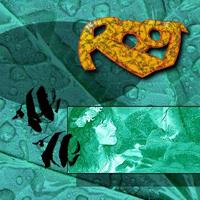 Let's go straight to the first album.
Please tell us more about Dreams Of Green from 1998
Dreams of Green was the most
nerve-wracking thing I had done to that point. I realised that every part had to
be approached with so much attention to detail. I almost gave up a few times but
was encouraged greatly by my wife, Lisa to finish it. It sounds very naive to me
now, but it was a step in the right direction. The title came from a song on the
album called "Not Water" where a fish dreams of how life would be on the land or
'not water' as he sees it - based on an idea from an episode of the Twilight
Zone. Don't look for the greener grass on the other
side.
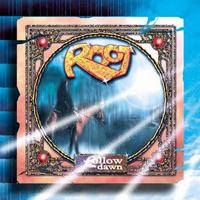 Please tell us more about your second
album Follow The Dawn from 1999
Follow the Dawn was a joy to make. Boosted
by the response to Dreams of Green. I let my ideas run free and had great fun
experimenting and trying all the things I didn't have the nerve to do on the
first CD. Lots more tempo changes, dynamics etc. The title comes from the song
'Born' on this album, which is a song of optimism, suggesting that a new day
follows the dawn for you to chase your dreams. 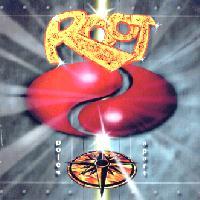 Please tell us more about your third album
Poles Apart from 2000
Poles Apart was a strange album to make.
Having tried all the things I always wanted to on the two previous albums, I was
left wondering where to start. The songs guided the album though. When I write
songs I usually strum quietly on a guitar and music and words flood in. This
time the subjects were much more 'human' rather than stories. Relating to
relationships and emotions. I decided to produce the album to highlight the
feelings in the words, which stretched my producer's role and also limited my
chances for stretching out musically. Keeping the songs to the point. The title
comes from a track on the album, which talks of people appearing to be so
different but ultimately being guided by the same path.
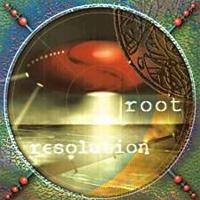 Please tell us more about your fourth
album Resolution from 2003
Resolution took a long time to make. I
started work on it very soon after the completion of Poles Apart and continued
in the same vein as Poles. But because of a technical problem I lost several
month's work. This was a big blow to me. I needed something to get me fired up
again. I decided that I needed to stretch out and express myself as a musician
as well as a songwriter. Not limiting myself to keyboard or guitar parts as I
had done on Poles. Arrangements could be more complex, longer, more varied, just
more fun for the musician in me. At the same time sad events in my life
influenced me to write the most personal set of songs yet, which are tied
together with a theme of hope and "Resolution". Believe in yourself and conquer
your fear of falling and who knows what you may achieve. It soon became obvious
that this would be a big task. As the songs took shape and the ambitious
arrangements worked it pushed me to want everything on the album as perfect as
it could be. The time it took was much more than my previous albums and as I
worked on, new songs were being written. The songs all seemed to fit together so
it eventually become a double album.
I also decided that the cover for the
album also had to be ambitious. It's always great to get a progressive rock
album with artwork to enjoy while you listen.
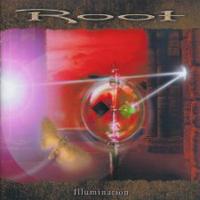 Please tell us more about your fifth album
Illumination from 2005
With “Illumination” I had a very personal
set of songs and learnt how to approach the songs as a producer would and let
the emotion of the songs dictate the sound of the music. It was a little scary
recording much shorter songs than normal without knowing how they would be
received by prog fans, but it has gone very well.
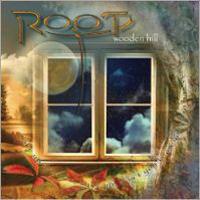 Please tell us more about your sixth album
Wooden Hill from 2007
I approached Wooden Hill from two
directions at the same time (if that is possible!). After illumination I was
keen to stretch out musically, but I also had several songs written which would
benefit from a melodic arrangement. It was my first album to major on guitar
with keyboards in a supporting role and it felt much better to me for that
approach. I had learnt so much over the years – playing keys, bass and drums –
it was time to let the guitar player in
me take over again. It was my first album to combine all the elements that I
wanted – lots of guitar, longer songs, harmonies and story
telling.
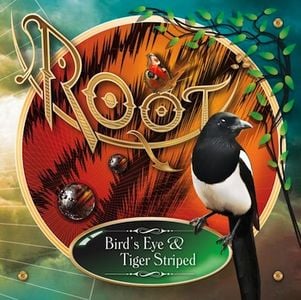 Please tell us more about your seventh and
most recent album Bird's Eye & Tiger Striped.
Bird's Eye & Tiger Striped is the
culmination of everything I have learnt since I started recording this music. It
has the ideal combination of sounds from all the Root music I have recorded to
date. It is so much fun to continue the approach started on the last album.
Guitars dominate, but not just heavy ones – acoustics and textural ones too!
Keys and harmonies are added to flavour the mix. Catchy songs, with prog music –
exactly my aim!
How would you describe the musical
developments on your seven studio albums ?
As I have mentioned throughout my album
stories. The major developments for me have been learning how to play all the
instruments needed to make this music, but finally being able to return to my
first love of guitar and letting those other instruments support my
songs.
Just to give those of us who are unknown
with your music a bit of a reference point or two: How would you describe your
music ?
The most common comparisons I receive are
late Marillion and David Gilmour or Neo-Prog. It is so hard to know what you
sound like yourself – I rely on others to tell me. I never stop being influenced
by new music though, so I may take it anywhere I want
to.
You have released all Root albums on your
own and is doing the manufacturing, distribution, marketing and sales yourself.
What is your experiences and what is the approx sales figures of your albums
?
I wish I could sell more, but I have found
that bootleg downloads were available of my latest album very soon after it was
released. That is very sad that people do that to musicians like me, who fund
the whole process and put so much time into it. How can anyone be happy to steal
my music and call themselves a fan?
What is your plans for the rest of this
year and next year ?
I have many things to maintain – website,
Myspace etc. I have also joined a covers band to get some gigging experience
again as I am a bit rusty with that. At some point I would like to start playing
Root music live again.
To wrap up this interview, is there
anything you want to add to this interview ?
I would like to thank anyone who supports
musicians like myself and buy our CDs, post reviews, news etc. You people are so
important and enable and give us a reason to do this. Keep up to date and buy
Root music from http://www.rootmusic.fsnet.co.uk" rel="nofollow - and http://www.myspace.com/rootspace" rel="nofollow - Thank you to David Kendall for this interview Root's PA profile is http://www.progarchives.com/artist.asp?id=3127" rel="nofollow - and homepage is http://www.rootmusic.fsnet.co.uk%20%20" rel="nofollow -
http://www.rootmusic.fsnet.co.uk" rel="nofollow -
http://www.myspace.com/rootspace" rel="nofollow -
|
